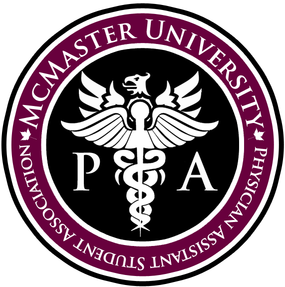Arranging Observerships/LPs

An important part in enhancing your educational experience in your first year as a Physician Assistant student, is to get exposure to health care practitioners in a variety of health care settings. This is beneficial whether or not observerships are a requirement of your PA program.
It’s important to note that as much as you would like to rely on your PA program administrators in connecting you with excellent observerships, its important to take your own initiative, take advantage of your network, or to research if you do not health care contacts.
Medical students call these “horizontal electives”, they may also be called, “Longitudinal Placements”. Regardless, you come in as an observer, and even may participate in patient encounters.
It’s important to note that as much as you would like to rely on your PA program administrators in connecting you with excellent observerships, its important to take your own initiative, take advantage of your network, or to research if you do not health care contacts.
Medical students call these “horizontal electives”, they may also be called, “Longitudinal Placements”. Regardless, you come in as an observer, and even may participate in patient encounters.
The Benefits of Doing Observerships in First Year
- Gives you an “edge” before you start your clerkship/clinical placements year. You have experience working with patients, more confidence, and are less intimidated.
- It can help you build your network: you may walk out with references from this experience
- It can help enhance your resume: it has shown you’ve taken initiative to get exposure to patient care in different health care settings.
- It can help you reinforce what you have learned in class.
- It can help you determine where you want to set up your clerkship placements for next year.
- It can lead to future jobs. Physicians who enjoy working with you, even if in first year, may be interested in taking you on as an employee.
- It helps you determine what area of medicine you would you like to focus in on. Whether you prefer an environment/lifestyle in family medicine, surgery, internal medicine, or specialized medicine.
To get the placement setup, contact the physician or physician assistant
You can get the contact information from the following means:
- PA Program coordinator: Set up an appointment to discuss various options. They usually have a list of preceptors they have connected PA students in the past. It’s best if you simply ask for the contact information, and make the initiative to setup the observership yourself.
- Your connections: If you have worked with a physician in the past, or have been a former patient, make a phone call or fire up an email asking if you could do a half day a week for several weeks (or even just one day).
- Physician Directories: Google different hospitals in areas or cities you are interested in doing a placement. Here are a few resources, to get your started:
- University Health Network: Find a Doctor, Toronto, ON
- McMaster FHS Faculty Directory, Hamilton, ON: Type in “Medicine” in “Department” (or other medical specialty)
How to get the most out of your placement
- Be Professional: Dress formal. Cleanly ironed dress shirt, and dress pants, as well as dress shoes.
- Bring your stethoscope. Your preceptor may ask you to listen to heart sounds, bowel sounds or breath sounds. These observerships are excellent opportunities to reinforce what you’ve learned in your clinical skills placements.
- Be punctual, enthusiastic, and A SPONGE for taking all the information you can from people at the placement, and from the experience you get from interacting with patients
- Bring a Notebook to write down clinical pearls/tips from your preceptor/supervising physician
- Learning expectations on placement: If a preceptor is uncertain about what to do with you (“I’ve never had a PA Student before” is the usual quote), mention that education wise, PA students are much like medical students, but the curriculum is condensed into 2 years instead of 4.
- Be willing to observe allied health workers. It’s good to know what a social worker does, physiotherapist, occupational therapist, diabetes educator, hospital inpatient pharmacists, podiatrist, etc. do. You will be referring patients in the future to these services so its good to know whats involved!
- Don’t be afraid to ask to stay longer than the arranged observership periods. My peers who excelled in class were those who had learned the medical principles, concepts and topics during by staying at their observerships over a span of many months (half day or evening a week). Preceptors allowed them to behave like PA clerks – seeing patients independently, taking histories, physicals, interpreting labs, and suggesting management plans.
ABOUTMPASA is the Student Association for McMaster's Physician Assistant Education Program in
Hamilton, Ontario, Canada. |
LINKS |
Disclaimer: The opinions expressed on this website are those of the author, and they do not reflect in any way those of the institutions to which they are affiliated.


